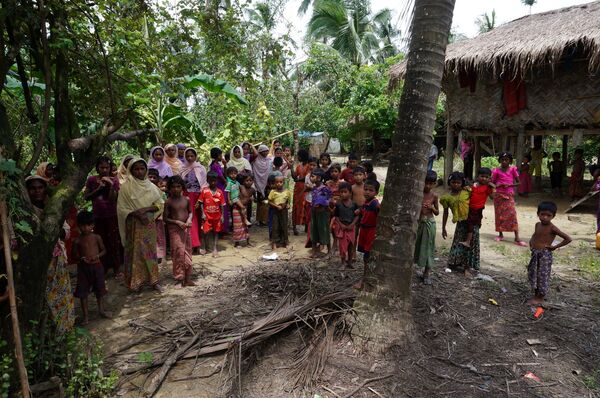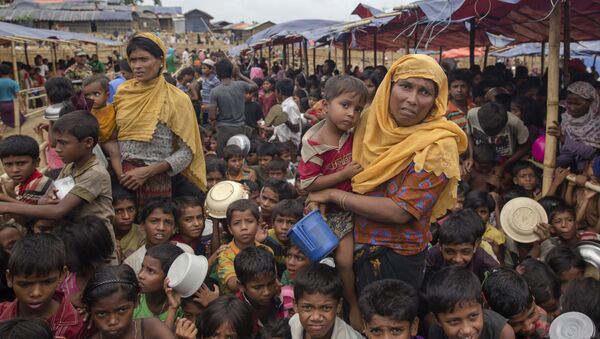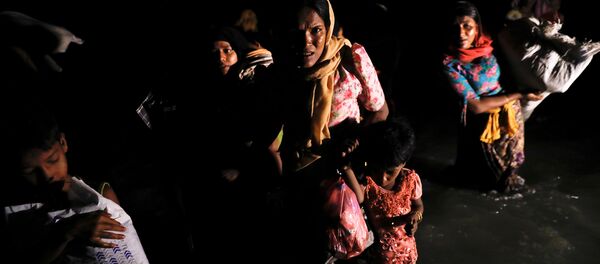Russian political analyst Azhdar Kurtov praised what he described as the "consistent" position of Chinese authorities, which earlier said that Myanmar can resolve its domestic problems on its own and that Beijing will not interfere in Myanmar's internal affairs.
"The Rohingya conflict should be viewed from all sides. Violence in Myanmar could be sparked by those forces that earlier tried to raise a wave of discontent within the Muslim world in other regions," Kurtov told Sputnik.
Behind this are attempts to shift the world's public opinion to the alleged oppression of Muslims, according to Kurtov.
"Knowing it full well, China tries its best to prevent the emergence of new ethnic tension in Southeast Asia, which is fraught with unpredictable consequences. That's why China's position only warrants respect," he said.
Speaking to Sputnik, Chinese political scientist Jia Leying also applauded Beijing's consistent approach to the resolution of the Myanmar crisis.

He said that Beijing proceeds from the assumption that China and Myanmar are historically bound by friendly ties and that the two countries stick to five principles of peaceful coexistence.
According to Jia, both sides are successfully developing bilateral political, trade and economic cooperation.
The Rohingya crisis, a man-made disaster, has caused suffering on an unimaginable scale: https://t.co/1EYgu6zCMn
— UN Refugee Agency (@Refugees) 28 октября 2017 г.
A united and thriving Myanmar, he added, is in line with the interests of its people, its neighbor China and the Association of Southeast Asian Nations (ASEAN), of which it is an important member.
"And if we do not stop the internal chaos in Myanmar, this will affect its integration into ASEAN," Kurtov said.
Still Continue @Rohingya border crossing to Bangladesh #RohingyaCrisis pic.twitter.com/3ueyFk1NMU
— Rowson Ara Radiya (@RowsonAraRadiya) 28 октября 2017 г.
He pointed out that strengthening stability in Myanmar contributes to the international order and helps create "a single destiny for humanity."
"That's why it is wrong to label the Myanmar issue as 'ethnic cleansing' or a 'massacre'. It is necessary to make the parties to the conflict launch an active dialogue so as to achieve a political resolution of the conflict. Otherwise, one can only aggravate the situation," he concluded.
The Myanmar army's subsequent brutal crackdown led to a number of clashes and the death of hundreds of Rohingya people. More than half a million Rohingya Muslims have already fled Myanmar, crossing into neighboring Bangladesh.



